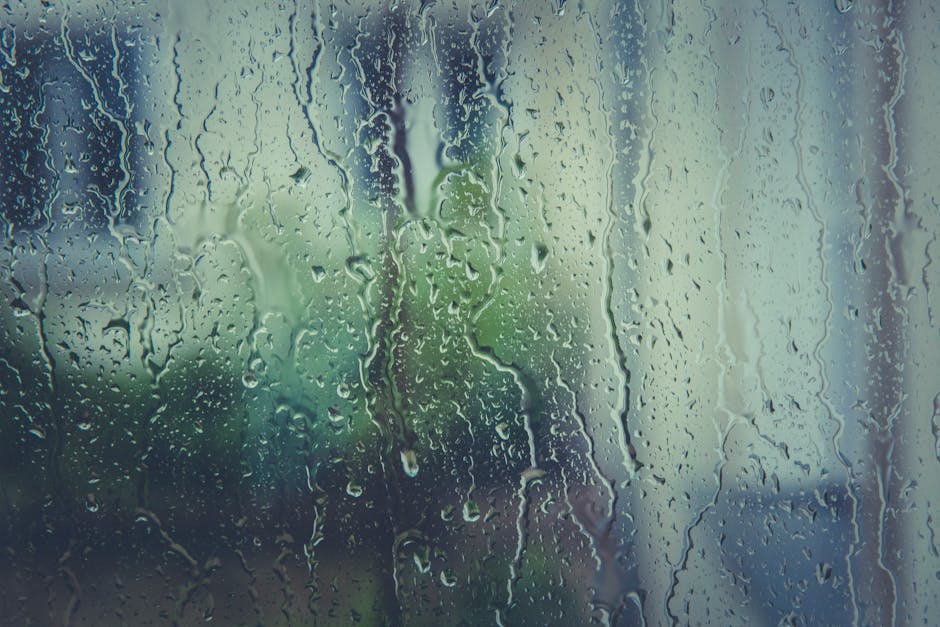Can rain showers and sunshine change how we feel?
Studies have shown that different weather types can change our emotional state. For several years, people have been diagnosed as suffering from SAD (seasonal affective disorder), while many experts also believe that cold or hot temperatures can drain our energy and tamper with our sleeping patterns, respectively.
So, what’s the truth? Fulton Umbrellas — a premium UK supplier of clear umbrellas and rainwear — explores how different weather patterns can affect our feelings and whether there’s proof to support the theory that climates can alter our behaviour…

Sunshine
For more than 150 years, people have reported feeling down during winter, according to research. Now named seasonal affective disorder (SAD), the condition is a type of depression that happens to sufferers at certain times of the year — most notably autumn and winter. According to research, 6% of UK adults have the disorder, and it can even affect children — although, the average age of SAD sufferers is 27 years.
Can the sun truly make us feel more positive? Some experts believe this to be true. Those studying SAD have found that the rate of vulnerability rises the further from the equator you live. Reports also show that sunshine boosts our moods by raising the level of a certain brain chemical called serotonin — believed to regulate our mood, anxiety and social functioning that is also used in many antidepressants. So, less sunshine means a weaker production of serotonin.
Interestingly, some studies have shown that our sleep improves after a day in the sun — and who doesn’t feel better after a good night’s sleep? Research carried out at the University of Rochester Sleep Laboratory in New York discovered that good weather caused participants of the study to sleep more soundly. This could have something to do with the fact that being exposed to bright light during the day encourages our bodies to produce more melatonin — a hormone that acts as a detoxifier, rejuvenator and sleeping agent —when the sun sets. In fact, a Finnish study discovered that rodents that were given daily sun exposure produced a great deal more melatonin at night than those that received only artificial light. Evidently, natural sunlight and a good night’s sleep seem to go hand in hand.
We get vitamin D from sunshine, and this nutrient is key to good health. So, could this work towards making us feel happier? Perhaps. To help your body get plenty of sunlight, save up for a winter-sun holiday and spend as much time outdoors when the weather is fine as you can.

Rain
It’s rarely a reason to smile when we see thunderclouds and rain on our day off work, so could it be argued that rain makes us unhappy? Some experts believe that rain could actually negatively affect our social lives, leading us to feel isolated, frustrated and downbeat.
A study of more than 11,000 adults, led by Dr. Alan Teo, found that digital communication (e.g. emails and phone calls) offered little protection against participants developing depression over a two-year period — unlike face-to-face contact. The people who met up with friends and family member three times every week showed the lowest rate of depression after two years — only 6.5% developed the condition compared to those who met up one a month (11.5% development rate). Chances are that we’ll cancel plans to socialise if it’s raining heavily, which could affect how outgoing we feel.
Plus, being outside in poor weather might lead us to feel unwell, which is rarely a cause for happiness. An experiment, carried out by researchers at the University of Freiburg, found that mice injected with a virus similar to human flu showed signs of despair, lethargy and sadness when battling the infection. According to the researchers, this is because our bodies react to an infection by releasing a protein that doesn’t respond well with our hippocampus — a region of our brains that controls mood.
Dark, dingy, rainy and cloudy mornings often mean people drive slower or are simply more inclined to drive, which means a tougher morning commute. So, to avoid letting the rain dampen your spirits, make sure you stay as dry as possible and set off for work earlier to avoid delays that cause anger and frustration.

Temperature
Of course, how warm or cool the day is can affect our moods, too. During colder months, our bodies are forced to work harder to keep us warm, which includes raising our heart rates. This means that more energy is diverted to achieve this aim, causing us to potentially feel lethargic and less willing to participate in socialising and activities when the temperature drops. But why is this important? Mental health organisation, Mind, states that getting exercise is a contributor to sound mental health, while another scientific study found that getting active holds ‘the promise of better mental health outcomes’.
Usually, winter means more colds and flus. Our immune systems must work harder and falling ill often brings on negative feelings. On top of this, chronic conditions — such as back pain — are more likely to flare up due to winter weather, which may make you feel frustrated. But what about hot weather? Apparently, one UK study predicted that higher temperatures due to climate change will cause 9,000 fewer deaths in winter by 2050, while other US studies have shown that there may be a link between crime and rising heat levels! But remember, just because it’s cold outside it doesn’t mean you can’t head out and enjoy yourself to life your spirits!
Evidently, the weather may have some impact on our emotions. Cut with the warnings about climate change, what can we expect in the future?

